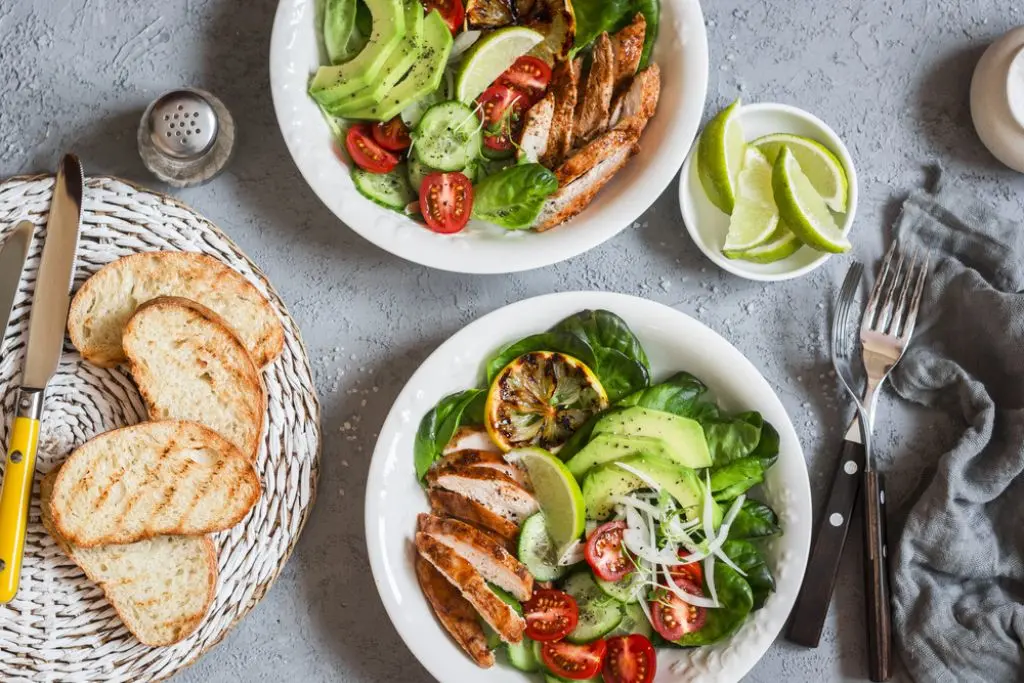Should You Eat Differently On Rest Days?

October 21, 2022 - Updated October 21, 2022

On your journey towards becoming a fitter, healthier version of yourself, eating well is just as important as a consistent workout schedule.
Some of the most common questions when it comes to fitness and nutrition include what to eat before and after a workout, meal timing around your training sessions, or which foods are high in protein for optimal muscle recovery and growth. But what about your rest day nutrition?
Should you eat less on your rest days or the same amount? Do you need more or less of certain macronutrients? Here’s what you need to know.
If you’re not doing a workout, surely you don’t need as much food?
A common misconception about rest day nutrition is that because you’re expending less energy, you should eat less food, but this isn’t the case. Your nutrition shouldn’t change significantly between your active days and rest days, if at all.
Yes, your total energy output may be lower on the days you don’t complete a structured workout, but your body is still working hard beneath the surface to recover (not to mention the important role food plays in maintaining all your usual bodily functions) and you need plenty of nutrients and energy to support this. Following a tough workout, your body can take 48-72 hours to recover!
Rest day nutrition isn’t about eating less or differently, it’s about continuing to eat well to promote muscle recovery and growth and prepare your body for your next workout. If gaining muscle mass or weight is your aim, make sure you’re eating enough to support those goals.
If weight loss is a goal for you (and it isn’t for everyone!) then eating slightly less could help you achieve that, but it shouldn’t be a dramatic reduction otherwise you can increase your risk of a slower recovery time, lower energy levels, and feeling fatigued in your next workout. If you are trying to lose weight, a slow and steady approach that allows you to maintain an adequate nutrient intake is recommended.

How and what should you eat on rest days?
Continue to eat as you normally would, focusing on nutrient-dense whole foods and listening to your natural hunger cues. If you feel hungry, eat. Remember, food is never something you need to earn by exercising - and your motivation for fitness shouldn’t be about burning off your food.
Some people also wonder if reducing or cutting out food groups such as carbohydrates is a good idea on a rest day, but continuing to eat a balanced diet that includes carbs, protein and healthy fats is the best way to go.
Carbohydrates are your body and brain’s main source of energy, as well as supporting muscle recovery. Your glycogen stores are depleted after your workouts, and eating carbs on your rest days helps to replenish those stores.
If you eat significantly less on days between workouts or avoid carbs, chances are you won’t be feeling your best when the time comes for your next Sweat session. For long-lasting fullness and slow-releasing energy, include plenty of high-fibre complex carbohydrates such as whole grains, beans and starchy vegetables in your diet.

At each meal on your rest days, try to include a good source of protein. Your body can only absorb so much protein at a time, and eating enough throughout the day is essential for muscle repair and growth.
According to The International Society of Sports Nutrition, eating a good source of protein every 3-4 hours is key for muscle protein synthesis, and is associated with improved body composition and performance outcomes. This could mean including eggs or yoghurt in your breakfast, chicken at lunch, and tofu for dinner! Hummus on crackers, a handful of nuts, or tuna and crackers all make for great snacks when you need a boost of energy.
Challenging workouts can cause muscle inflammation which can continue for a day or two afterwards, so make your plate colourful with fruits, vegetables and antioxidant-rich foods such as berries and dark leafy greens. Research has also shown that good rest day nutrition can have a positive impact on delayed onset muscle soreness, and who wouldn’t want that?
Finally, don’t forget hydration! Just because you’re not losing as much water through puffing and sweating doesn’t mean you should skimp on your daily water intake. Drinking plenty of water on your rest days (around eight cups is a good target) can also replenish any lost fluids from the previous day and ensure you’re not dehydrated when it’s time for your next workout.

What if you feel hungrier than normal on a rest day?
It’s not unusual to feel hungrier on rest days and there are a few reasons why. One is that exercising causes an increase in blood flow to your muscles and a decrease in blood flow to your gut, which can suppress your appetite and explain why many people don’t feel as hungry after a workout.
Another explanation is that if you did an intense workout or were very active and didn’t eat enough throughout the day to replenish your energy stores, you may find yourself feeling extra hungry the next day.
Your appetite can also be influenced by your hormones and where you are in your menstrual cycle, so tracking your period can be a helpful way to get to know your body’s unique rhythms and see if there’s a pattern.
If your hunger has increased, listen to your body and give it the nourishment it needs to refuel! For meals that will keep you feeling full for longer, focus on foods high in protein and fibre.
Although intuitively you might think you don’t need as much food on your rest days, it’s important to eat as you normally would between workouts to replenish your glycogen stores for energy, promote muscle recovery and growth, and support your body’s essential daily functions. Leading an active lifestyle needs a lot of energy!

A more empowered you starts with Sweat, and our editorial team is here to bring you the latest fitness tips, trainer recommendations, wellbeing news, nutritional advice, nourishing recipes and free workouts.
* Disclaimer: This blog post is not intended to replace the advice of a medical professional. The above information should not be used to diagnose, treat, or prevent any disease or medical condition. Please consult your doctor before making any changes to your diet, sleep methods, daily activity, or fitness routine. Sweat assumes no responsibility for any personal injury or damage sustained by any recommendations, opinions, or advice given in this article.
Nutrition